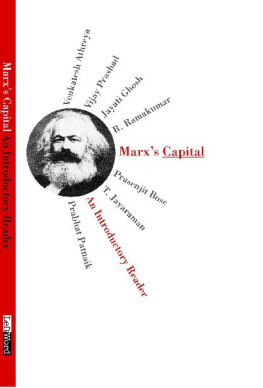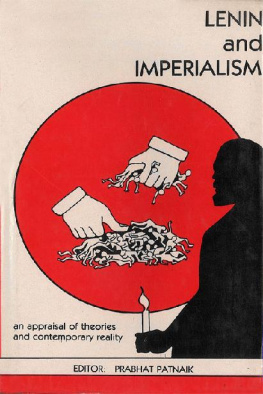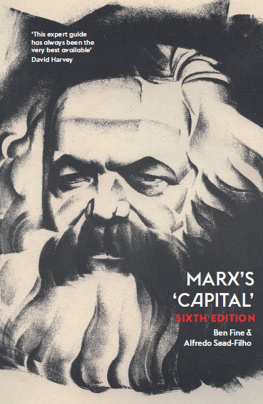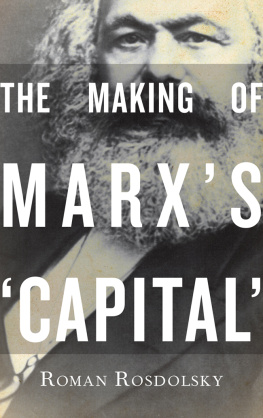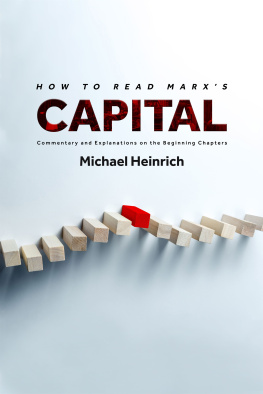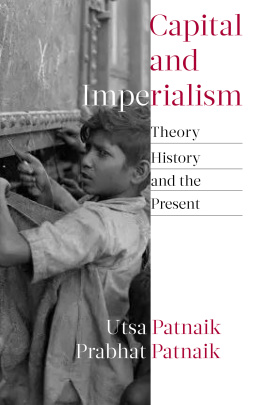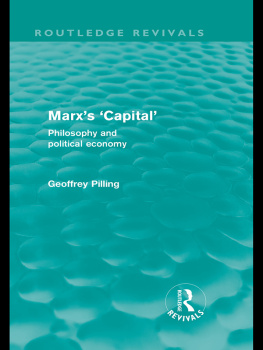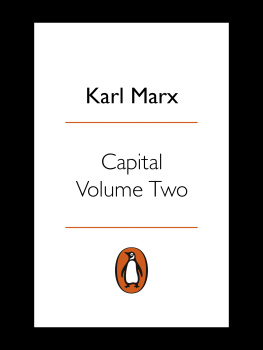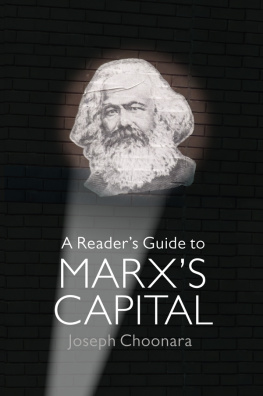Social life is essentially practical. All mysteries which lead theory astray into mysticism find their rational solution in human practice and in the comprehension of this practice.
K ARL M ARX , E IGHTH T HESIS ON F EUERBACH
[Marx] discovered the special law of motion governing the present-day capitalist mode of production, and the bourgeois society that this mode of production has created. The discovery of surplus value suddenly threw light on the problem, in trying to solve which all previous investigations, of both bourgeois economists and socialist critics, had been groping in the dark....
Marx was before all else a revolutionist.... Fighting was his element. And he fought with a passion, a tenacity and a success such as few could rival....
And, consequently, Marx was the best hated and most calumniated man of his time. Governments, both absolutist and republican, deported him from their territories. Bourgeois, whether conservative or ultra-democratic, vied with one another in heaping slanders upon him....
His name will endure through the ages, and so also will his work.
F REDERICK E NGELS S PEECH AT THE G RAVE OF K ARL M ARX H IGHGATE C EMETERY , L ONDON , M ARCH 17, 1883
Marxs Capital
Marxs Capital
An Introductory Reader
V ENKATESH A THREYA
V IJAY P RASHAD
J AYATI G HOSH
R. R AMAKUMAR
P RASENJIT B OSE
T. J AYARAMAN
P RABHAT P ATNAIK
Print edition first published in January 2011
E-book published in August 2017
LeftWord Books
2254/2A Shadi Khampur
New Ranjit Nagar
New Delhi 110008
INDIA
LeftWord Books is a division of
Naya Rasta Publishers Pvt. Ltd.
leftword.com
Rights to this work rest with
the authors for individual essays,
and with LeftWord Books for the volume as a whole,
and it is published under Creative Commons
Attribution-Share Alike 2.5 India license.
For details of this license, visit
http://creativecommons.org/licenses/by-sa/2.5/in/
Contents
V ENKATESH A THREYA
V IJAY P RASHAD
J AYATI G HOSH
R. R AMAKUMAR
P RASENJIT B OSE
T. J AYARAMAN
P RABHAT P ATNAIK
Each of the essays in this volume is a commissioned piece, written especially for new readers of Capital . In a volume of this kind, it is inevitable indeed, it is desirable that some basic formulations be stated explicitly, which readers with some background of the subject may find preliminary. However, each of the authors has taken care to not limit him/herself to only preliminary explication of concepts, and has endevoured to go into matters of advanced theory. The volume as a whole also has a broadly similar trajectory the first couple of essays set the foundation, the middle four essays graduate from basic concepts to theoretical discussion and debates, and the last essay does not go into basic concepts at all, but applies the method of Capital to theorise about contemporary capitalism.
No single volume can do complete justice to the entire range of subjects covered by Marx in Capital , and this volume is no exception. However, as stated above, the volume is an introductory reader, meant to only equip new readers with the basic conceptual keys that could unlock the vast treasure trove of Marxs analysis and insights.
Venkatesh Athreya
Reading Capital changed my life.
It happened almost, but not quite, by accident. I had completed my bachelors degree in Chemical Engineering from a prestigious Indian institute in 1969 and had, to every ones surprise, chosen to pursue doctoral studies in economics at a US university. The student movement against the US aggression in Viet Nam was developing powerfully at the university where I had enrolled for my Ph.D. But the courses I had to study as part of my doctoral programme in economics did not provide any explanation for such important questions as to why the worlds most powerful nation was engaged in a war of aggression against a tiny third world country. It was then that I stumbled upon a study group negotiating Karl Marxs Das Kapital . You may wonder why this is even worth a mention when the book under reference is a very difficult book on economics written in the 1850s and 1860s, which many think is obsolete and irrelevant. But I had by this time realized that mainstream economics offered no credible explanation of the unjust world we lived in, and I was willing to join the study circle. The next six months changed my life entirely.
I read Das Kapital in English, and the first time as part of a study circle of ten persons, most of whom were doctoral students at the university from various social science disciplines. At first, I found I had to read the text very carefully, as each sentence was significant in a different way each time I read it. Slowly, I realized that the manner of Marxs argument was relentlessly logical, and I began to enjoy the book a great deal, as an engineer with an inclination to analytical argumentation. As I read the book over and over again over the next several semesters of my stay in the university, I began to see something else in Capital . Even in translation, Capital read like poetry! So immense was Marxs scholarship, apart from his acute grasp of political economy arising from his basic theoretical framework of dialectical and historical materialism, that the pages of Capital , in the middle of abstract argument, would be enlivened by an apt quotation from Shakespeare or Goethe! The other striking aspect of Marxs style of writing was the sharp sense of humour, with devastating sarcasm marking his references to some bourgeois economists like Nassau Senior and Jeremy Bentham who were apologists for the capitalist system.
What did I, an engineering graduate trained in mathematical economics, learn from Capital ? First, I learnt that to understand a society and its dynamics, one needed to look at it in historical perspective. Second, the basic determinants of the dynamics of a society lay in the manner in which the means of production were owned and the relationship between the direct producers and the means of production. Third, the capitalist mode of production in essence is based upon ( i ) a separation of the direct producers (working people) from the means of production and their transformation into free wage labourers at one pole, ( ii ) the transformation of the means of production into the private monopoly/property of a class of capitalists at the other pole, and ( iii ) the logic of relentless pursuit of profit on private account, with all production taking place on private account for sale in markets with a view to profit. Marx demonstrates that this profit-driven system is necessarily expansionist, both in terms of geography and in terms of the range of activities that can be brought under the drive of profit. To read the discussion on the circuit of capital as well as the last part entitled the modern theory of colonization in the first volume of Capital is to understand the inherently globalizing nature of capitalism. After all, if the sole goal is profit, why should the pursuit of it be confined to one part of the world or only one set of activities? If making money is the name of the game, why not make it in any manner possible, be it running a factory or a self financing college or worse! Surely, business ethics is an oxymoron, a contradiction in terms! Marxs analysis of the capitalist mode of production and its inherent logic enables one to understand colonial expansion and what Lenin later called the system of imperialism with its global expansion and colonization and enslavement of people all over the world.


